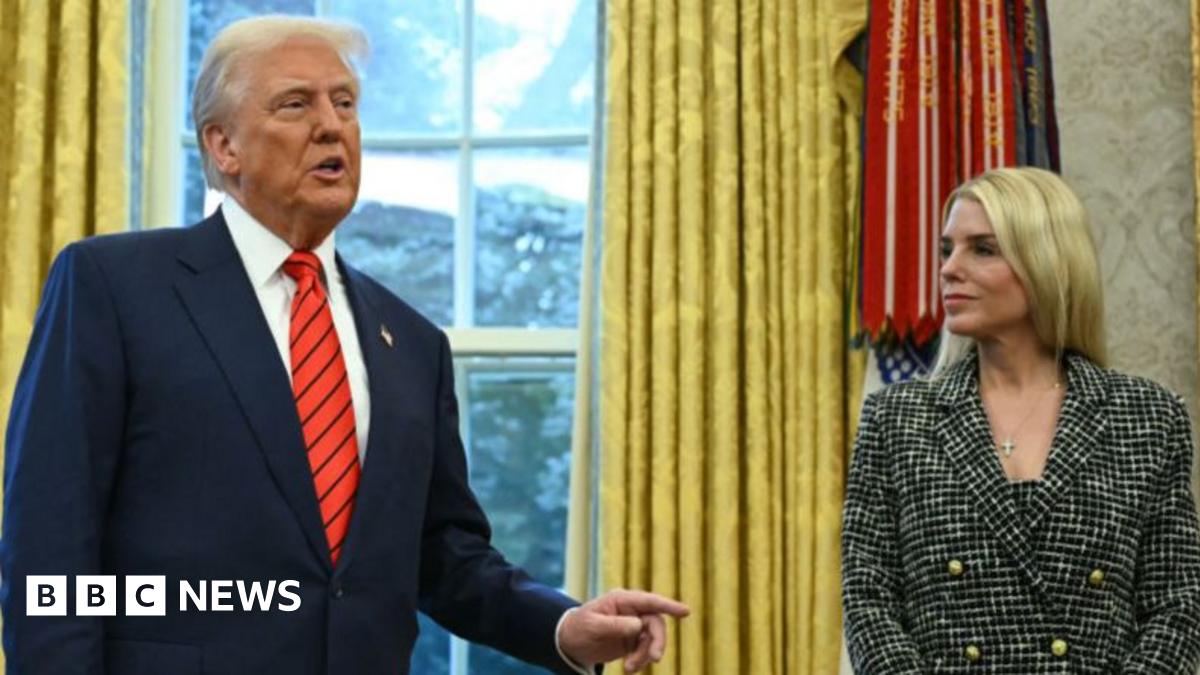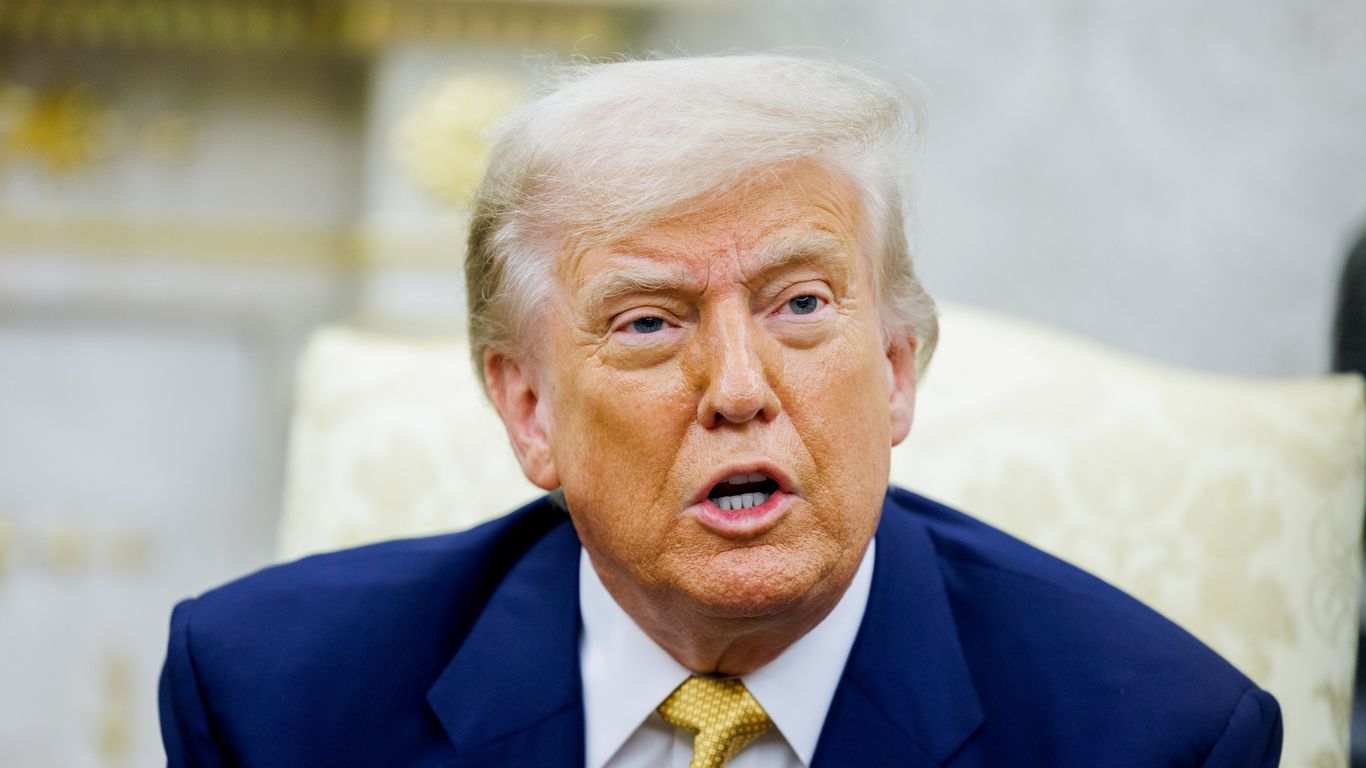CBS Cancels Late-Night Show After Criticizing Trump

Introduction
CBS has decided to cancel Stephen Colbert's late-night show, just days after the host criticized the network's parent company for paying U.S. President Donald Trump $16 million over a disputed interview. This move has caused speculation that CBS may be trying to avoid further backlash from the president and his supporters.
Key Details
Colbert had openly scoffed at the decision to pay Trump such a large sum, considering the interview in question had been heavily disputed and the network had previously stated they would not pay for it. The late-night host has been known for his outspoken criticism of the president and this decision by CBS has only added fuel to the fire.
Furthermore, this cancellation comes after Trump's former lawyer, Michael Cohen, pleaded guilty to campaign finance violations related to hush money paid to women who claimed to have had affairs with Trump. This has raised questions about the network's relationship with the president and their willingness to appease him.
Impact
The cancellation of Colbert's show has sparked a debate about the role of corporations in politics and the potential influence of the president on media outlets. It also raises concerns about the freedom of speech and expression in the entertainment industry. With Trump's constant attacks on the media, this decision by CBS adds to the growing tension between the two parties.
About the People Mentioned
Stephen Colbert
Stephen Colbert is a renowned American comedian, actor, and television host. Born on May 13, 1964, he initially gained recognition as a correspondent on Comedy Central's "The Daily Show" from 1997 to 2005. During this period, he contributed to the show's numerous Emmy and Peabody Awards wins. One of his notable segments was "This Week in God," where he humorously reported on theological topics. In 2005, Colbert launched "The Colbert Report," a satirical news program that parodied conservative pundits, particularly shows like "The O'Reilly Factor." The show became a huge success, catapulting Colbert to full celebrity status. His appearance at the 2006 White House Correspondents' Association Dinner further solidified his reputation for sharp political satire. He also authored several best-selling books, including "I Am America (And So Can You)" in 2007. In 2015, Colbert succeeded David Letterman as the host of CBS's "The Late Show with Stephen Colbert." Initially, the show faced challenges in finding its footing, but it eventually rose to the top of the ratings, particularly after Colbert began focusing on political humor related to the Trump administration. He hosted the 69th Primetime Emmy Awards in 2017 and has won numerous awards, including nine Primetime Emmy Awards and two Grammy Awards. Colbert continues to be a significant figure in American television, known for his witty commentary and satire. He has also been involved in various other projects, including providing voice work for animated films and co-authoring books. His work has earned him recognition as one of Time's 100 Most Influential People in 2006 and 2012.
Donald Trump
Donald John Trump, born June 14, 1946, in Queens, New York, is an American businessman, media personality, and politician. He graduated from the University of Pennsylvania’s Wharton School in 1968 with a degree in economics. In 1971, he took over his family’s real estate business, renaming it the Trump Organization, through which he expanded into building and managing skyscrapers, hotels, casinos, and golf courses. Trump gained widespread fame as the host of the reality TV show *The Apprentice* from 2004 to 2015, which helped establish his public persona as a successful entrepreneur. Trump entered politics as a Republican and was elected the 45th president of the United States, serving from 2017 to 2021. His presidency was marked by significant policy actions including tax cuts, deregulation, the appointment of three Supreme Court justices, renegotiation of trade agreements (notably replacing NAFTA with the USMCA), and a focus on immigration control including border wall expansion. He withdrew the U.S. from international agreements such as the Paris Climate Accord and the Iran nuclear deal, and engaged in a trade war with China. His administration’s response to the COVID-19 pandemic was criticized for downplaying the virus’s severity. Trump was impeached twice by the House of Representatives—first in 2019 for abuse of power and obstruction, and again in 2021 for incitement of insurrection—but was acquitted by the Senate both times. After losing the 2020 election to Joe Biden, Trump challenged the results, culminating in the January 6, 2021, Capitol riot. He remains a central figure in American politics, having won the 2024 presidential election and returned as the 47th president in 2025, continuing to promote policies aimed at economic growth, border security, and military strength[1][2][3][4].
About the Organizations Mentioned
CBS
CBS, originally founded in 1927 as the Columbia Broadcasting System, is a major American media company known primarily for its commercial broadcasting, television production, and publishing activities. It began as a radio network established by talent agent Arthur Judson but was soon acquired by William S. Paley, who transformed it into a dominant force in radio by leveraging advertising revenue through large audiences[1][5]. CBS expanded into television early, launching experimental broadcasts in 1931 and pioneering the first color TV broadcast in 1940 from its Chrysler Building transmitter in New York City[1][2]. The network became a leader in television entertainment and news through the mid-20th century, with iconic programs and personalities such as Ed Sullivan, Lucille Ball, and Walter Cronkite contributing to its popularity[3]. CBS also innovated in network news with the Columbia News Service, led by Edward R. Murrow, which established its reputation for serious journalism in the 1930s and 1940s[2]. Throughout its history, CBS diversified into related sectors like recording (Columbia Records) and publishing but eventually refocused on broadcasting and entertainment. It underwent several corporate transformations, including a merger with Westinghouse Electric Corporation in 1995, adoption of the CBS Corporation name, and acquisition by Viacom in 2000. After splitting from Viacom in 2005 and operating independently, CBS re-merged with Viacom in 2019 to form ViacomCBS, which was renamed Paramount Global in 2022. In 2025, CBS became the flagship network of the newly formed Paramount Skydance Corporation following an $8 billion merger with Skydance Media[3][4]. Today, CBS remains a key player in American media, known for its broad programming reach, influential news division, and historical significance in radio and television innovation. Its long-standing presence and adaptability in business and technology make it a cornerstone of the broadcasting industry. CBS’s leadership under President and CEO George Che
















